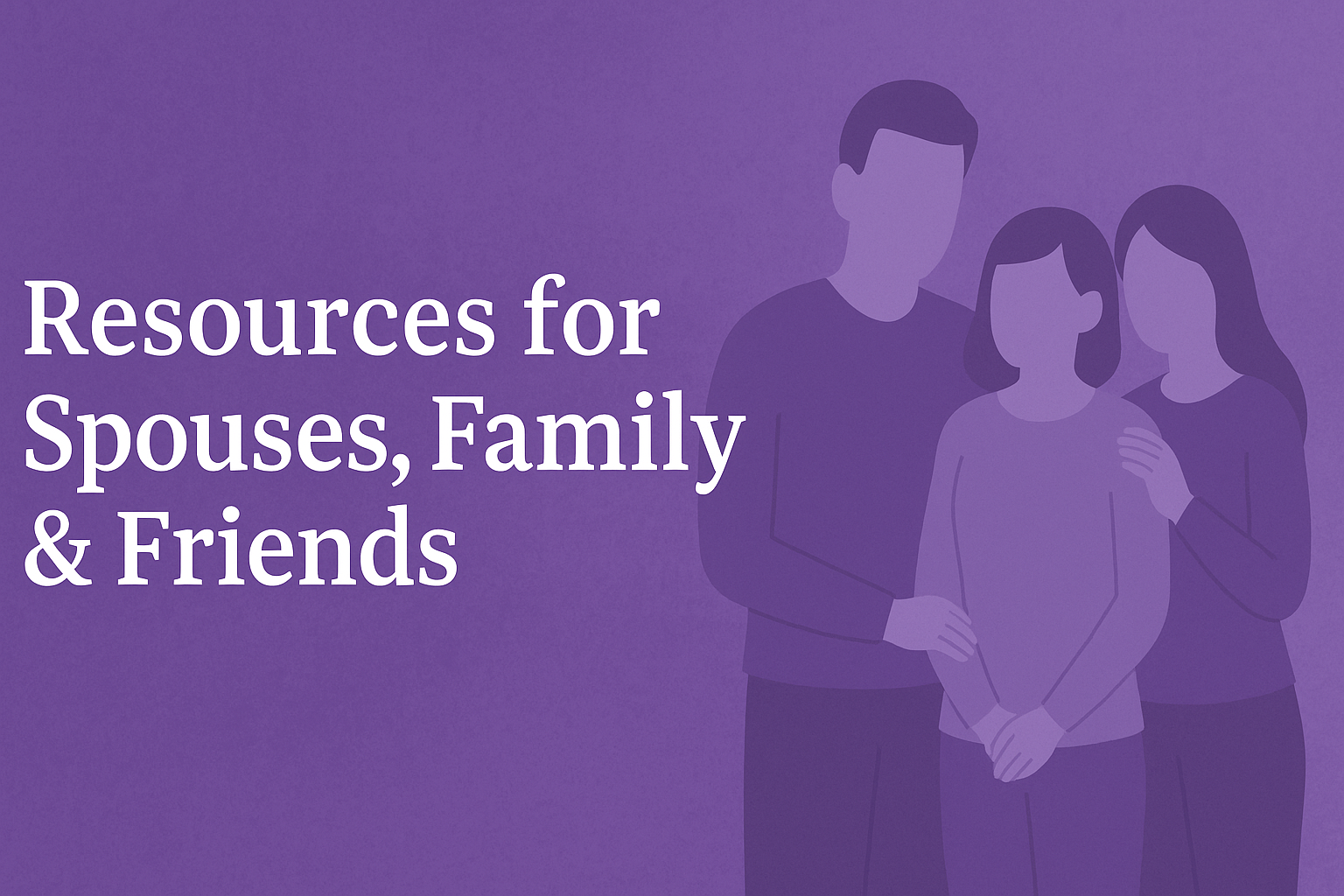Guidance for partners, children, and friends offering support.
Overview: Different relationships bring unique caregiving challenges.
- Spouses/partners: balancing intimacy, marriage, and caregiving
- Parents and children: explaining cancer to kids and teens
- Friends: how to help beyond “let me know if you need anything”
Resources for Spouses, Family & Friends
Pancreatic cancer affects more than just the person diagnosed—it impacts everyone close to them. Spouses, children, parents, and friends each play different roles in caregiving, and each relationship comes with unique challenges. At Sky Foundation, we understand this deeply: our board, volunteers, and committees are filled with survivors, spouses, parents, and friends who have lived through these experiences. This resource is here to provide practical guidance and emotional support for every member of the family circle.
Spouses & Partners
When a spouse or partner becomes a caregiver, the balance between “caregiver” and “partner” can feel complicated.
- Communicate honestly: Talk openly about fears, needs, and boundaries. Silence often adds stress.
- Preserve intimacy and normalcy: Shared meals, date nights at home, or short walks can help maintain your connection.
- Plan together: Involve your partner in care decisions whenever possible, even if energy is low.
- Seek couples counseling: Professional support can help manage the emotional weight.
Parents & Children
Parents often shoulder caregiving responsibilities, but children—especially teens—are also affected. Honest and age-appropriate conversations are essential.
- Explain clearly: Use simple, direct language without hiding the truth.
- Validate emotions: Reassure kids it’s okay to feel sad, angry, or confused.
- Provide stability: Keep routines consistent when possible.
- Invite participation: Teens may want to help—assign small, manageable roles like walking the dog or writing notes to the patient.
Sky Foundation’s family-focused communities include caregivers who can share strategies for talking with children and teens.
Friends & Extended Family
Friends often want to help but don’t know how. As a caregiver, you can guide them to provide meaningful support.
- Offer specific suggestions: Instead of saying “let me know if you need anything,” suggest meals, childcare, or transportation.
- Respect schedules: Understand treatment days may not allow for social visits.
- Show consistency: Long-term help matters more than one-time gestures.
- Stay connected: Regular texts or calls help caregivers feel less isolated.
Sky Foundation reminds friends that they are critical members of the support team. Reliable help lightens the load in tangible ways.
Coping Together as a Family Unit
Families often experience role shifts when a loved one is diagnosed. To cope together:
- Hold regular family check-ins to share updates and feelings.
- Assign roles (e.g., one person manages paperwork, another handles transportation).
- Acknowledge each person’s contribution, big or small.
Key Takeaway
Spouses, children, parents, and friends each bring vital support during a pancreatic cancer journey. By offering clear communication, practical help, and consistent presence, families and friends can reduce stress and strengthen hope. Sky Foundation offers survivor-led guidance, caregiver communities, and Legacy Giving opportunities to ensure your love and care leave a lasting impact.

